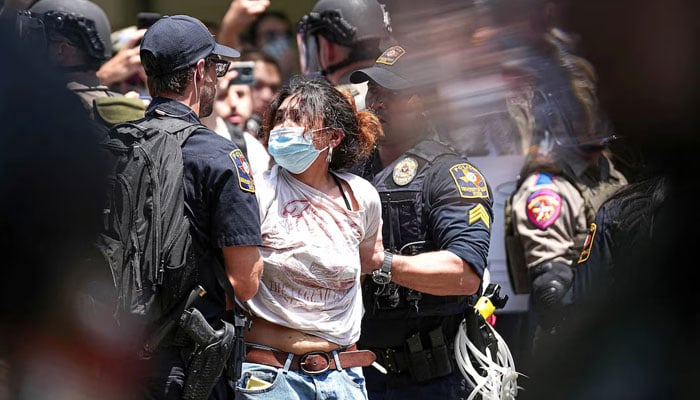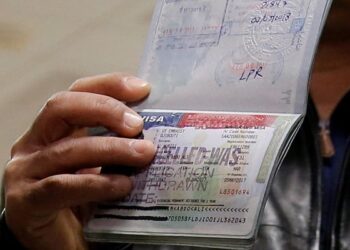Select Language:
TEXAS: The international student community in the United States is facing significant turmoil following a surge in student visa cancellations, with Texas being hit the hardest.
Reports indicate that over 122 international students have had their visas revoked or their immigration statuses terminated. These actions have been implemented through the Student and Exchange Visitor Information System (SEVIS), putting their legal residency in jeopardy.
Although authorities have not provided an official reason for this sudden shift, immigration specialists believe it could be tied to stricter immigration laws, intensified monitoring of social media, and possible political motives.
The universities in Texas that have been affected include:
- University of North Texas (UNT): 27 students
- University of Texas at Arlington: 27 students
- Texas A&M University: 23 students
- University of Texas at Dallas: 19 students
- University of Texas Rio Grande Valley: 9 students
- Texas Woman’s University: 4 students
- Texas Tech University: 3 students
- University of Texas at El Paso: 10 students
Additionally, while specific numbers have not been shared, the University of Texas at Austin and the University of Houston have reported alterations to the immigration status of some international students.
The vice chair of the faculty senate at the University of North Texas noted that SEVIS statuses for 16 students were originally terminated, but that number later rose to 27. Most of the affected students are pursuing graduate degrees, and university officials have indicated they are in active communication with these individuals.
In a statement, the U.S. Department of Homeland Security announced plans to begin monitoring the social media accounts of international students for what they classify as “antisemitic” content.
This initiative follows two executive orders from President Donald Trump, which signal a clampdown in response to pro-Palestinian demonstrations at various college campuses, particularly in Texas.
Dallas-based immigration lawyer Naim Sukhia expressed concern, stating, “Being removed from SEVIS undermines a student’s legal right to due process. It essentially ejects them from the immigration system without a clear explanation.”
Sukhia emphasized that losing SEVIS status not only disrupts the academic journey of the students but also impacts the legal status of their dependents, such as spouses and children.
Students in this predicament have few available options: they can either exit the country or seek reinstatement, a process that can be long, uncertain, and complex.
However, Sukhia encouraged those who receive such notifications to promptly contact their Designated School Official (DSO) to investigate the possibility of reinstatement. “Even though it can be a lengthy and unpredictable journey, it is worth pursuing,” he advised.
US media reports indicate that a significant portion of the students affected by the visa cancellations are from South Asian countries and the Middle East.
Many of the impacted students, along with their advocacy organizations, are contemplating legal action to contest the decisions in court. Additionally, a social media initiative tagged #SaveTexasStudents is gaining momentum, advocating for justice and support for international students.
A representative from the University of Texas at Dallas stated, “This situation is evolving, and we are continuously engaging with affected students to help them navigate through these uncertainties.”
The University of North Texas also remarked that 19 of the 27 students removed from SEVIS were graduate students who contributed significantly to the university’s international academic environment.
As a prime destination for international students in the U.S., Texas now seems to be becoming a more challenging environment for those seeking education from abroad.
Experts warn that if this trend continues, it could significantly limit access to American higher education for thousands of aspiring students across the globe. In light of these developments, legal professionals urge affected students and their families to seek guidance from experienced immigration attorneys for further support.






